Description
ABSTRACT
Curbing Tax Avoidance Arising from Voluntary Pension Contributions: A Critique of the 2017 LIRS and JTB’S Public Notices
Dr Olumide K Obayemi*
The persisting global economic downturn poses several challenges for the sub-Saharan Africa region. With plunging oil and commodity prices, sub-Saharan economies must reassess their investment and business regulatory policies because of the fear that the robust economic growth recorded over the past decade may be over. As a result of dwindling revenue from global crude oil sale, the Nigerian federal government is facing some of the most massive budget deficits in its history, and Nigerian finance experts and tax stakeholders have opined that the projected budget deficits are unsustainable and that the federal government needs to close the budget gap through reduced spending and/or increased revenue. One way the Nigerian government could increase tax revenue is through tightening up the tax avoidance routes by which income and gains that ought ordinarily to be subject to tax escape tax due to porous leakages in the Nigerian administrative policies and enforcement of its tax laws. An example is the gains and income accruable under the contributory pension schemes. The Paper critiques the attempts by both the federal and state governments to curb tax evasion via the early withdrawal of contributory pension savings by employees. It examines the appropriateness of the several legislation governing the taxation of pension contributions; highlights the legality of the 2017 Public Notices which seek to curtail abusive practices by the contributors; and offers suggestions for reform.
Keywords: Tax revenue, Tax avoidance, Tax evasion, Pension scheme, LIRS, JTB.
INTRODUCTION
The present President Muhammadu Buhari-led administration has stated its commitment to diversifying the sources of government revenues by significantly increasing the tax to Gross Domestic Product (GDP) ratio, among other things. Based on the 2018 budget, non-oil revenues (mainly comprising Companies Income Tax, Value Added Tax, Customs and Excise Duties, tax amnesty, joint ventures, various recoveries, etc.) are estimated to contribute 63% to the projected aggregate revenue of ₦6.607trillion.1 The Government has, therefore, intensified efforts to broaden the tax net using tax programmes.2
Further, the 2016 Nigeria National Tax Policy3 has stated the challenges facing the Nigerian tax system as including the need to grow internally generated revenue.
*LL.B, BL, LL.M (Alberta, Canada), SJD, ACTI, MCIArb (UK), FIPMD. Managing Partner, Theophilus & Caroline, Lagos, Nigeria (Attorneys-at-Law). Lecturer, University of Lagos, Akoka, Nigeria.
- KPMG (Nigeria), ‘2017 in Review’ [2018] Nigerian Tax Journal para 2.0. accessed 6 March 2018.
- ibid
- Federal Ministry Finance, Nigeria Tax Policy (Federal Ministry Finance, Abuja, 28 September 2016) accessed 3 October 2017

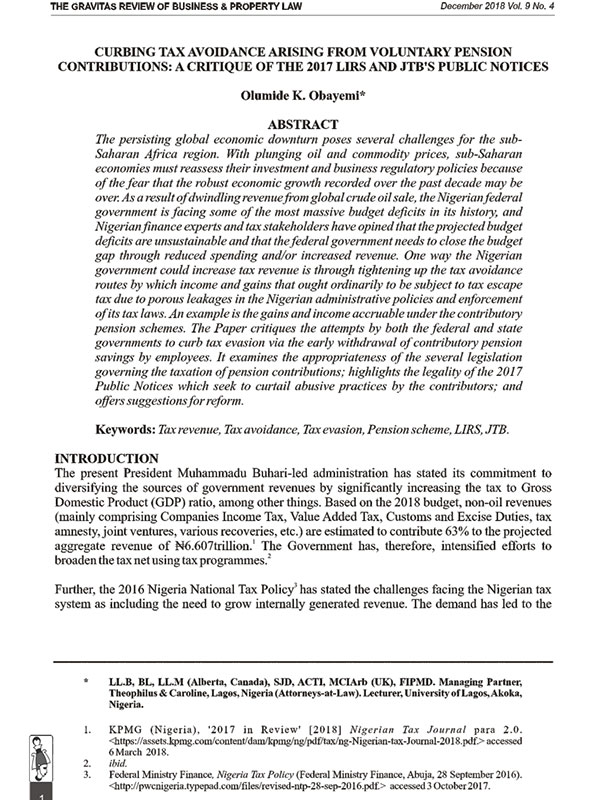
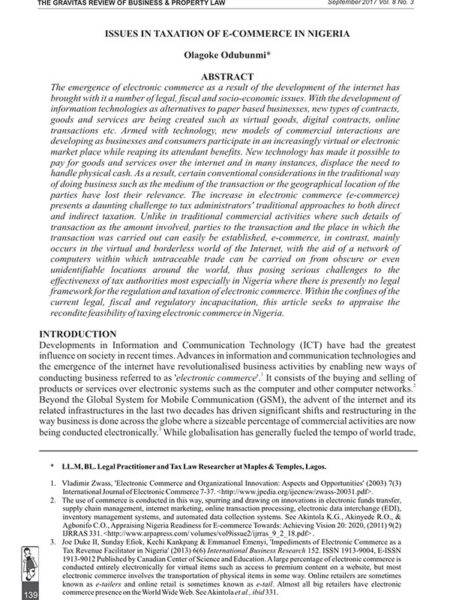
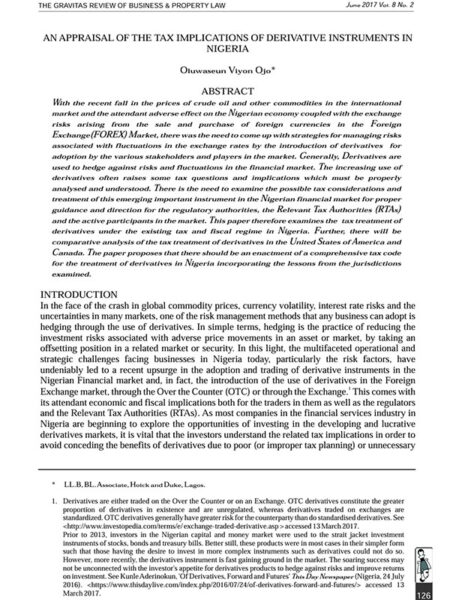
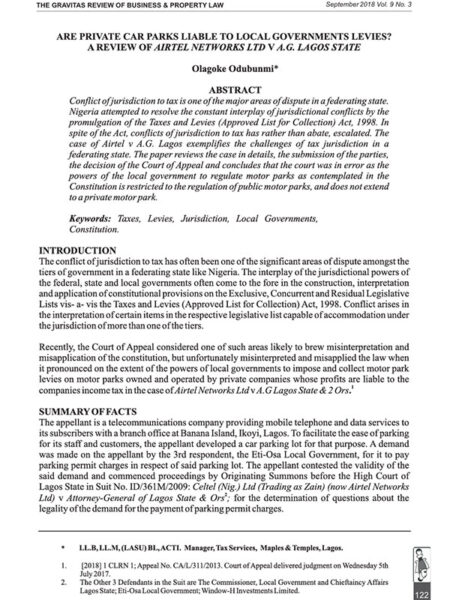
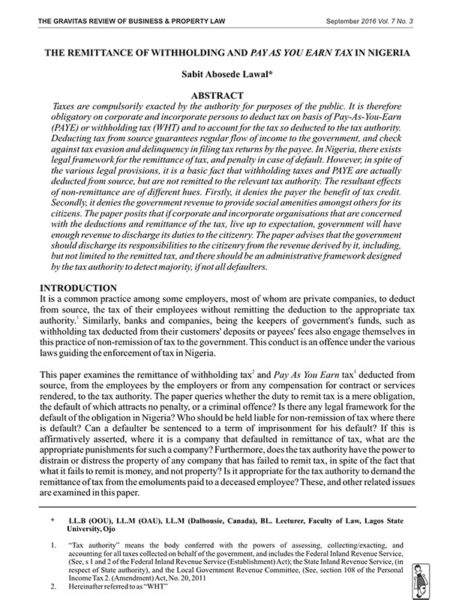


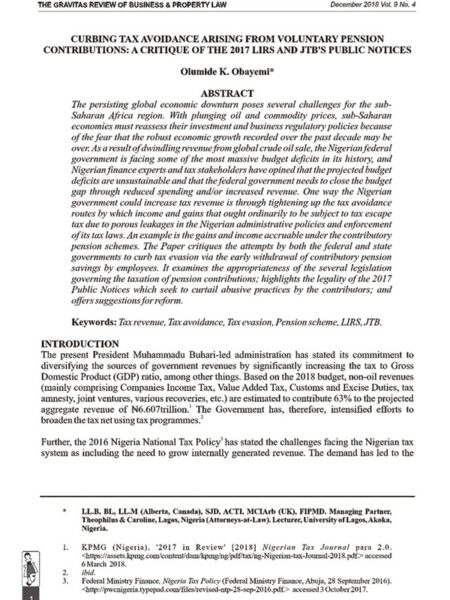
Reviews
There are no reviews yet.